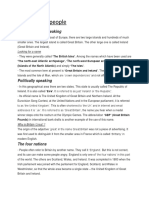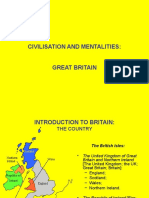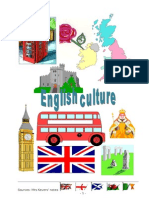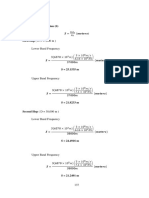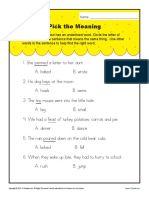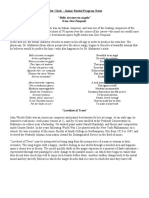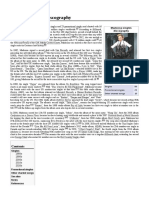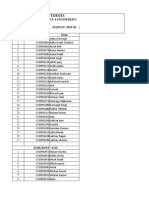0% found this document useful (0 votes)
12 views8 pagesText
The document provides an overview of the geography, culture, and identity of Britain, highlighting the distinct cultural influences of Celtic and Germanic origins across different regions. It discusses the dominance of English culture, the significance of music, and the diverse ethnic groups present in Britain, including the Indian subcontinent and Black Caribbeans. Additionally, it explores social dynamics, family life, and the complexities of identity in Northern Ireland, emphasizing the interplay of ethnicity, religion, and politics.
Uploaded by
vylam266Copyright
© © All Rights Reserved
We take content rights seriously. If you suspect this is your content, claim it here.
Available Formats
Download as TXT, PDF, TXT or read online on Scribd
0% found this document useful (0 votes)
12 views8 pagesText
The document provides an overview of the geography, culture, and identity of Britain, highlighting the distinct cultural influences of Celtic and Germanic origins across different regions. It discusses the dominance of English culture, the significance of music, and the diverse ethnic groups present in Britain, including the Indian subcontinent and Black Caribbeans. Additionally, it explores social dynamics, family life, and the complexities of identity in Northern Ireland, emphasizing the interplay of ethnicity, religion, and politics.
Uploaded by
vylam266Copyright
© © All Rights Reserved
We take content rights seriously. If you suspect this is your content, claim it here.
Available Formats
Download as TXT, PDF, TXT or read online on Scribd
/ 8









